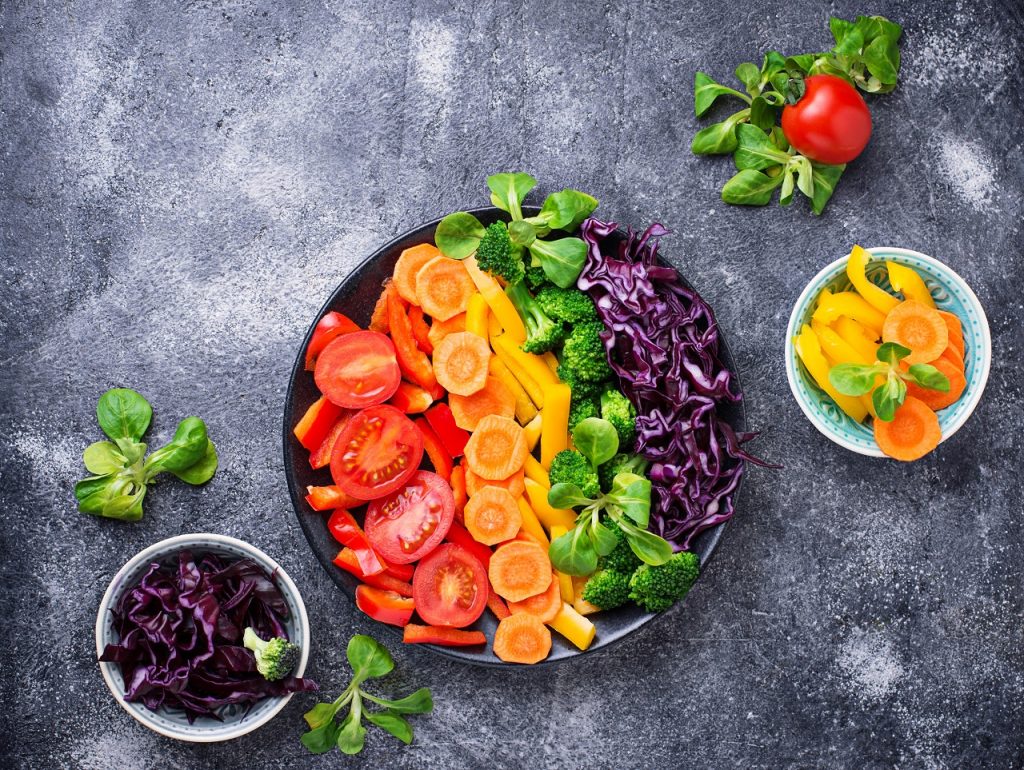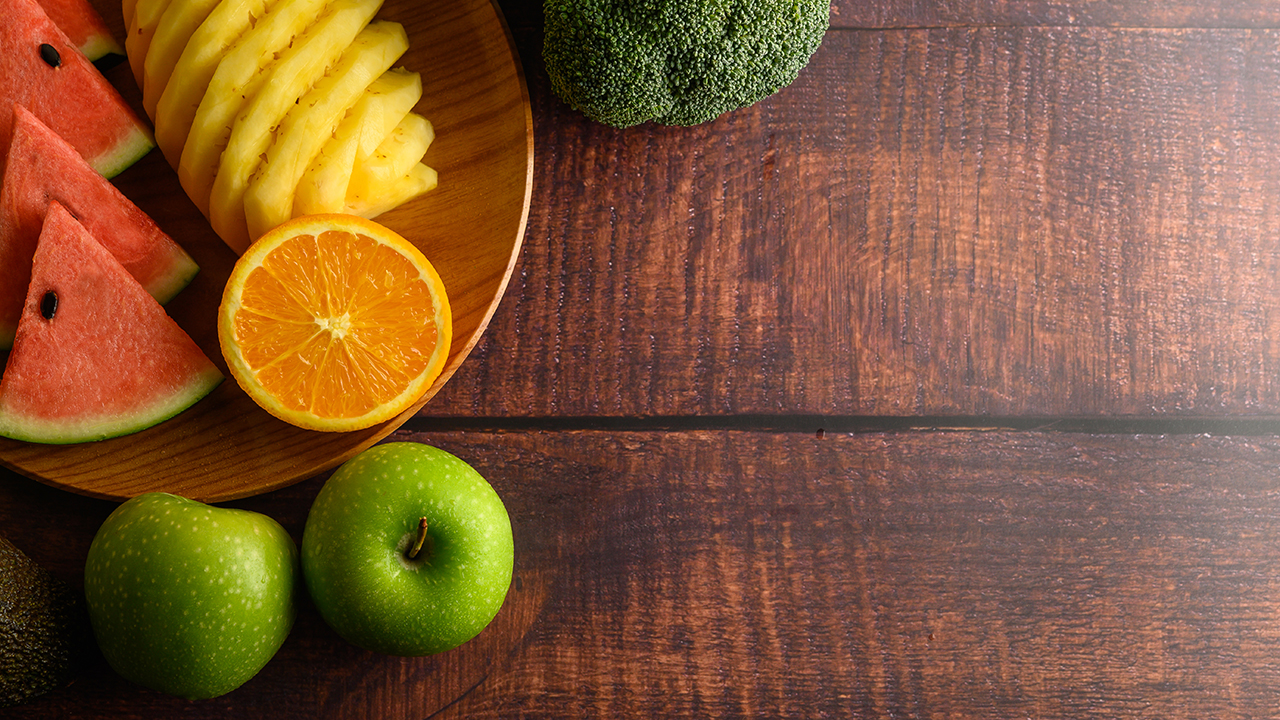
Different foods have different colors, this is because of the different coloured pigments in them. These pigments, also called phytonutrients (phytoplants), provide various benefits to our body. Specific phytonutrients have specific functions, each playing a crucial role in the well being of humans. While immunity and good health is just a play of a well functioning organ system, it is very important to take care of each organ and function in particular. This can only be made sure when the diet is diverse and sufficient in all essential nutrients and in moderation. Hence, the Rainbow Diet!
What Is The Rainbow Diet?
The rainbow diet focuses on the consumption of a variety of colourful and fresh produce in your meals. Ensuring a colourful diet, ensures indiscriminate intake of all nutrients and also protects from any deficiencies that may have detrimental health outcomes. As a low or high of any one specific nutrient can disturb the peculiar balance of the optimum nutrient complex imperial to maintain good health.
The mantra of “eating the rainbow” inspires to add more color and colourful plant foods to the diet. It is a health based trend rather than the fads that provoke masses to avoid gluten, fats, lactose, carbs and what not! Here, all you need to do is add as many colors to your diet as possible in the form of different coloured plant based foods and that’s how you make sure you are doing right to your body! That way, one never has to worry about balancing as the rainbow diet is naturally balanced and with no side effects.
How Does It Help?
The abundance of supply of antioxidants and anti-inflammatory molecules from the rainbow diet, translates to a good immunogenic response by the body and allows effective combat against biological stressors and oxidative stress. In addition to this, plant foods are rich in fiber and prebiotics, both of which improve digestive function and gut health, making sure the best absorption of all available nutrients.
In all, the rainbow diet is beneficial for avoiding cardiovascular diseases and maintaining heart health, protecting against cancer, building good immunity and restricting infections. Additionally, it also helps in reducing weight, keeping away obesity related disorders, helps maintain good hair, skin and nails, keeps your energy levels high and improves overall good mood!
The Color Code Of Foods
Here you may find options of foods under each color and health function category and learn about its role.
| Red | Immune health | Cherry, cranberry, raspberry, watermelon, pomegranate, red plums, strawberry, red grapes, dragon fruit, apple, tomato, red pepper, beetroot, kidney beans, red amaranth | Anti-inflammatory, antioxidant, immune modulating |
| Orange | Reproductive health | Orange, papaya, sweet potato, persimmon, pumpkin, cantaloupe, mango, muskmelon, peach, apricot, almond, paprika | Endocrine modulation, fat-soluble antioxidants, role in ovulation and fertility |
| Yellow | Digestive health | Banana, pineapples, ginger, lemon, yellow zucchini, corn, sweet lime, yellow pepper, cinnamon, turmeric, honey, whole grains and husk | Anti-inflammatory, binders, fibres, catalysts, gastric motility, glycemic response, prebiotic |
| Green | Cardiovascular health | Spinach, kale, fenugreek, radish leaves, micro greens, broccoli, Brussels sprouts, cucumber, green beans, olives, avocado, kiwi, grapes, green apple, pear, parsley, pumpkin seeds | Clotting, detoxification, methylation, vasodilation, binders, antioxidants |
| Blue- Purple | Brain health | Purple grapes, fig, purple jam, blueberry, mulberry, jamun (java plum), prunes, plums, eggplant, purple cabbage, purple onion, lavender | Anti-inflammatory, antioxidant, brain protective, cognition support, neuronal support |
| White | Skeletal health | Cauliflower, milk/curd/paneer (cottage cheese), coconut, sesame, radish, soyabean, turnips, white onion, garlic, sunflower seeds | Probiotic, strengthening, absorptive, energising |
We hope this article on the Rainbow Diet helps you choose and adapt these foods to your diet! Do try it and let us know in the comments below! For more on nutrition, check out Healthy Reads or to get nutrition information, tips and recipes directly from your GOQii Coach, sign up for Personalised Health Coaching here.
Eat healthy and #BeTheForce







